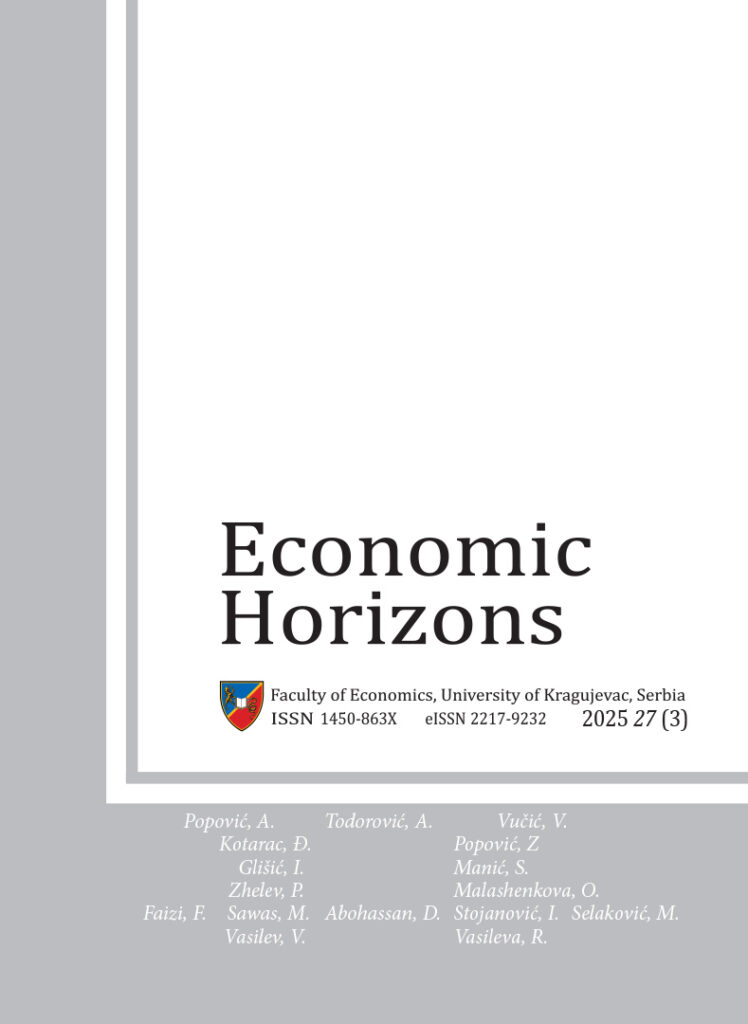
THE JOURNAL IS PUBLISHED
THREE TIMES A YEAR
in April, August and December
Dejan Jovanović and Vesna Janjić
Faculty of Economics, University of Kragujevac, Kragujevac, The Republic of Serbia
With an increase in the number of the companies that have adopted the ISO 14001 standard, the interest demonstrated in research studies regarding the assessment of the motives for and benefits from the ISO 14001 standard implementation has also been increasing. Nevertheless, in spite of the importance of the ISO 14001 standards, a discussion on their importance and the role of accounting in this process yet remains an open issue among researchers and practitioners. Starting from the above said, the main purpose of the research conducted in this paper is to identify the motives for and benefits from the implementation of the ISO 14001 standard and to examine the role of accounting in the implementation process. The empirical research in this paper was performed on the example of the 33 companies that have the obligation to submit their data on the sources of environmental pollution to the National Pollution Register. The data were collected through a poll of the management of the companies via a questionnaire, whereas the data analysis was performed by using various quantitative statistical methods and techniques, and primarily through the application of descriptive statistics and non-parametric tests. The results of the research indicate that the primary motives for the introduction of the ISO 14001 standards are an environmental responsibility, creating the image of a socially responsible company and the improvement of performances, whereas the benefits can be synthesized through the improvement of environmental performances, efficiency and profitability. Also, the results of the research study indicate that the managers of the companies partly recognize the role of accounting in the implementation of the ISO 14001 standard. The main conclusion of the research is that the management of the companies partly recognize the role of accounting in the ISO 14001 standards implementation. The main conclusion of the research is that the management of the companies in Serbia understand the importance of the implementation of the ISO 14001 standards, but not to a proper extent, as well as the role of accounting in that process.
Keywords:
JEL Classification:
Since March 2015, the Journal is indexed in DOAJ
Since November 2013, the Journal is indexed in ProQuest – ABI/INFORM
Since October 2013, the Journal is indexed in Cabell’s Directories
Since September 2013, the Journal is indexed in Index Copernicus Journals Master List 2012
Since March 2013, the Journal has been evaluаted and accepted for listing in EconLit (American Economic Association Publications)
Since January 2013, the Journal has been included into EBSCO’s databases
Since November 2012, the Journal has been included into Ulrich’s Periodicals Directory
Since March 2015, the Journal is indexed in DOAJ
Since November 2013, the Journal is indexed in ProQuest – ABI/INFORM
Since October 2013, the Journal is indexed in Cabell’s Directories
Since September 2013, the Journal is indexed in Index Copernicus Journals Master List 2012
Since March 2013, the Journal has been evaluаted and accepted for listing in EconLit (American Economic Association Publications)
Since January 2013, the Journal has been included into EBSCO’s databases
Since November 2012, the Journal has been included into Ulrich’s Periodicals Directory